
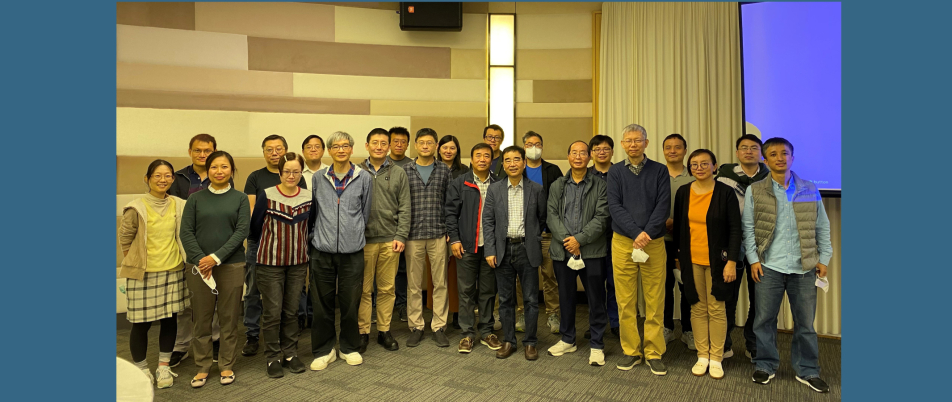
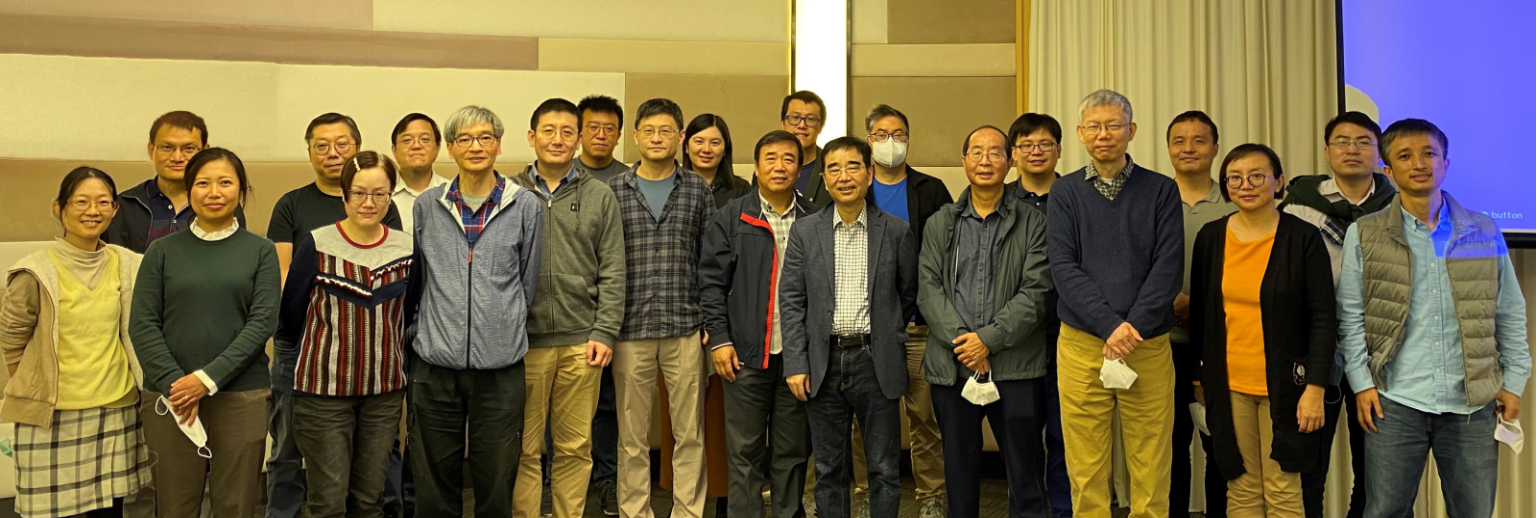

People
Academic Staff
Teaching Staff
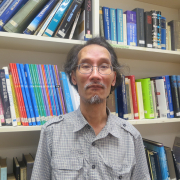
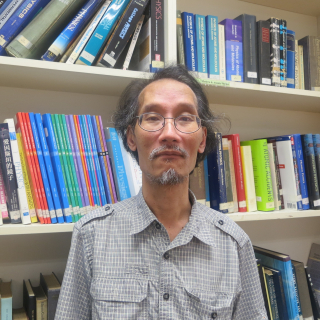
Prof. Hoi Fung Chau
Professor
B.Sc., Ph.D. HKU; M.IEEE.; F.Inst.P.
Room 520, Chong Yuet Ming Physics Building
3917 1925
3917 1925Research Interests
Quantum Information Processing, Quantum Cryptography, Quantum Speed Limit
Consultation Hours
Thursday 4:00 p.m. - 6:00 p.m. (2024/25 Sem 2)


Prof. Guanhua Chen
Adjunct with Department of Physics
Professor, Department of Chemistry
Room 601, Chong Yuet Ming Chemistry Building
2859 2164
2859 2164

Prof. Giulio Chiribella
Professor (by courtesy)
Professor, Department of Computer Science
Room 304, Chow Yei Ching Building
2859 2193
2859 2193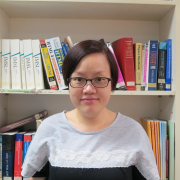
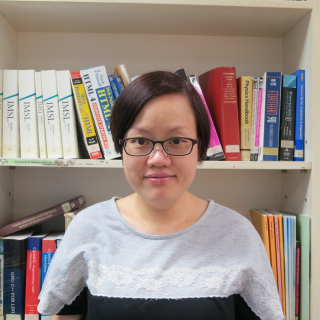
Dr. Fung Kiu Chow
Assistant Lecturer
B.Sc., M.Phil., Ph.D. HKU
Room 104C, Chong Yuet Ming Physics Building
2219 4265
2219 4265Research Interests
Computational physics and Econophysics
Consultation Hours
Monday 2:30 p.m. - 3:20 p.m., Thursday 11:30 a.m. - 12:20 p.m. (2024/25 Sem 2)
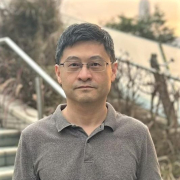
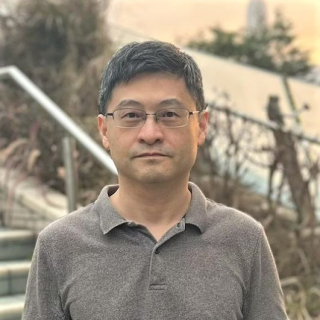
Prof. Xiaodong Cui
Chair Professor, Associate Head
B.S. USTC; Ph.D. Ariz State
Room 209, Chong Yuet Ming Physics Building
3917 8975
3917 8975Research Interests
Experimental Solid State Physics, 2 Dimensional Semiconductors, Spin Physics, Optical Spectroscopy
Consultation Hours
Wednesday 9:00 a.m. - 11:00 a.m. (2024/25 Sem 2)


Prof. Lixin Dai
Associate Professor
B.Sc. HKUST; M.Sc., Ph.D. Stanford
Room 311J, Chong Yuet Ming Physics Building
3910 2166
3910 2166Research Interests
Time Domain Astronomy, Black Hole Astrophysics, Multi-Messenger Astronomy, Large Scale Numerical Simulations
Consultation Hours
Monday 4:00 p.m. - 6:00 p.m. (2024/25 Sem 2)


Prof. Aleksandra B. Djurišić
Professor
B.Sc(Eng); M.Sc.(Eng); Ph.D. Belgrade
Room 315, Chong Yuet Ming Physics Building
3917 7946
3917 7946Research Interests
Halide Perovskite Optoelectronics, Metal Oxide Nanomaterials
Consultation Hours
Wednesday 12:00 noon - 2:00 p.m. (2024/25 Sem 2)
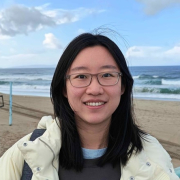
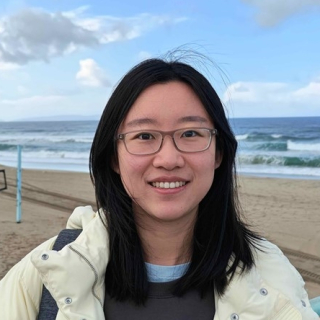
Prof. Meng Gu
Assistant Professor
BSc. NJU; M.A., Ph.D. Harvard
Room 311K, Chong Yuet Ming Physics Building
3917 7848
3917 7848Research Interests
Galaxy Formation and Evolution, Stellar Population and the Initial Mass Function, Low Surface Brightness Observations of Galaxies, Environmental Impact on Galaxy Evolution
Consultation Hours
Thursday 3:00 p.m. - 5:00 p.m. (2024/25 Sem 2)
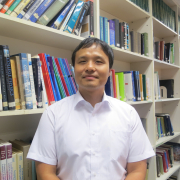
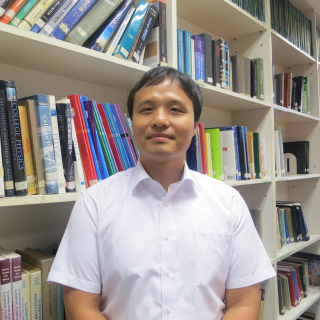
Prof. Dong-Keun Ki
Assistant Professor
B.Sc., Ph.D. POSTECH
Room 311C, Chong Yuet Ming Physics Building
3910 2163
3910 2163Research Interests
Mesoscopic Physics, Quantum Transport, Low-Dimensional Systems, 2D Materials
Consultation Hours
Monday 3:00 p.m. - 5:00 p.m. (2024/25 Sem 2)
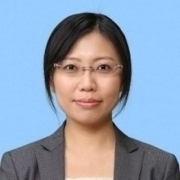
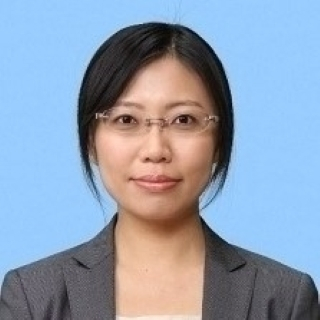
Prof. Jenny Hiu Ching Lee
Associate Professor
B.S. CUHK; M.S., Ph.D. Michigan State
Room 516, Chong Yuet Ming Physics Building
3917 4616
3917 4616Research Interests
Experimental nuclear physics for the studies of the nucleon correlations and the nuclear shell structure evolution. Experimental techniques include direct reactions, in-beam gamma spectroscopy and beta-decay spectroscopy.
Consultation Hours
Monday 10:30 a.m. - 11:30 a.m., Thursday 9:30 a.m. - 10:30 a.m. (2024/25 Sem 2)
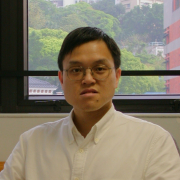
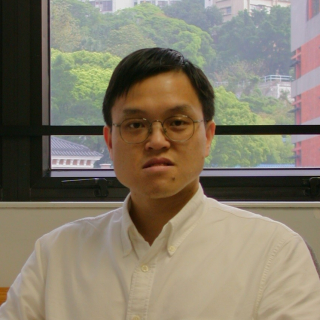
Dr. Kai Ming Lee
Lecturer
B.Sc. HKU; Ph.D. Caltech
Room 415A
3917 2370
3917 2370Research Interests
Mathematical Physics, Quantum Field Theories and General Relativity
Consultation Hours
Monday 9:30 a.m. - 11:30 a.m. (2024/25 Sem 2)


Prof. Man Hoi Lee
Adjunct with Department of Physics
Associate Professor, Department of Earth Science
Room 318A, James Hsiong Lee Science Building
2219 4817
2219 4817
Consultation Hours
Monday 2:30 p.m. - 4:30 p.m. (2024/25 Sem 2)
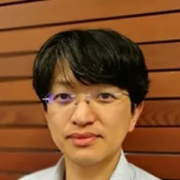
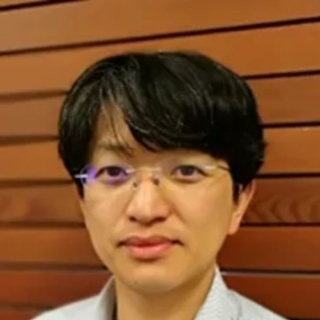
Prof. Lain-Jong Lance Li
Chair Professor (by courtesy)
Chair Professor, Department of Mechanical Engineering
Rm 104, Meng Wah Complex
3910 2657
3910 2657

Prof. Jeremy Jin Leong Lim
Professor
B.Sc., Ph.D. Macquarie
Room 531, Chong Yuet Ming Physics Building
2219 4924
2219 4924Research Interests
Astrophysics - Star Formation, Stellar Activities, Evolved Stars, External Galaxies, Radio Interferometry
Consultation Hours
Wednesday 2:20 p.m. - 4:20 p.m. (2024/25 Sem 2)
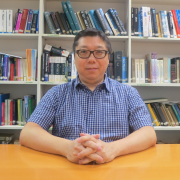
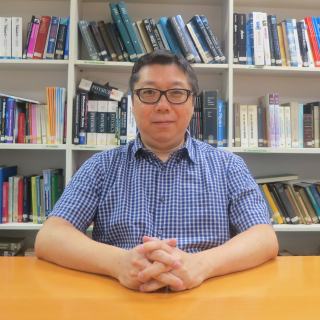
Prof. Francis Chi Chung Ling
Associate Professor
B.Sc., M.Phil., Ph.D. HKU; C.Phys.; M.IEEE; F.Inst.P.
Room 417, Chong Yuet Ming Physics Building
3917 5248
3917 5248Research Interests
Defects in Semiconductors, Electrical and Optical Properties of Semiconductors, Carrier Transport in Semiconductors, Semiconductor Junctions, Positron Annihilation Spectroscopy, Deep Level Transient Spectroscopy
Consultation Hours
Monday 10:00 a.m. - 12:00 noon (2024/25 Sem 2)

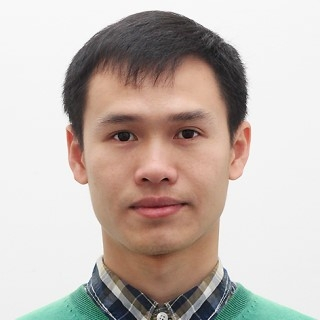
Prof. Tran Trung Luu
Assistant Professor
B.Sc. VNU; M.Sc. KAIST; Ph.D. LMU
Room 311A, Chong Yuet Ming Physics Building
3917 2364
3917 2364Research Interests
Ultrafast Optics, Strong-field Laser Physics, Attosecond Science
Consultation Hours
Wednesday 4:30 p.m. - 6:30 p.m. (2024/25 Sem 2)
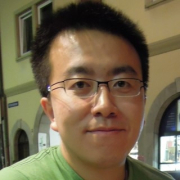
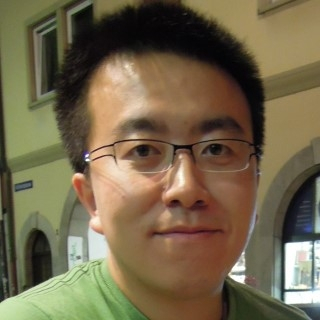
Prof. Zi Yang Meng
Professor
B.Sc. USTC; Ph.D. Uni. Stuttgart
Room 231, Hui Oi Chow Science Building
3917 7850
3917 7850Research Interests
Quantum Many-body Physics, Quantum Phase Transitions and Entanglement, Quantum Monte Carlo and Tensor-networks, Explainable-AI in Physics
Consultation Hours
Monday 8:30 a.m. - 10:30 a.m. (2024/25 Sem 2)
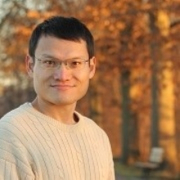

Prof. Stephen Chi Yung Ng
Associate Professor
B.Sc., M.Phil. HKU; M.S., Ph.D. Stanford
Room 517, Chong Yuet Ming Physics Building
3917 7947
3917 7947Research Interests
Radio and X-ray Observations of Neutron Stars, Pulsar Wind Nebulae, Supernova Remnants, Cosmic Ray Acceleration, Cosmic Magnetic Fields
Consultation Hours
Monday 9:30 a.m. - 11:30 a.m. (2024/25 Sem 2)


Dr. Jason Chun Shing Pun
Principal Lecturer
B.A., B.S. Roch; M.A., Ph.D. Harv
Room 104D, Chong Yuet Ming Physics Building
2859 1962
2859 1962Research Interests
Supernovae and Supernova Remnants, Galactic and Extragalactic X-ray and Gamma-ray Sources, Cosmic-ray and Neutrino Physics, Light Pollution
Consultation Hours
Wednesday 9:30 a.m. - 11:30 a.m. (2024/25 Sem 2)
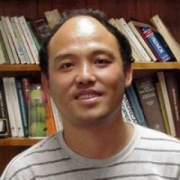
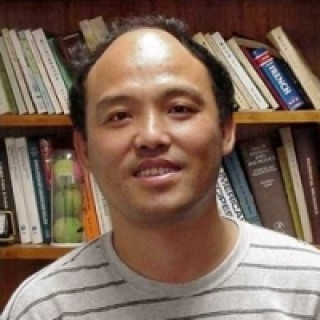
Prof. Shunqing Shen
Professor
B.Sc., M.Sc. Ph.D. Fudan
Room 208, Chong Yuet Ming Physics Building
2859 8901
2859 8901Research Interests
Spin Transport in Semiconductor, Topological Insulators
Consultation Hours
Wednesday 2:00 p.m. - 4:00 p.m. (2024/25 Sem 2)


Prof. Yanjun Tu
Associate Professor
B.Sc. USTC; Ph.D. Penn
Room 419A, Chong Yuet Ming Physics Building
3917 4662
3917 4662Research Interests
Experimental High Energy Physics, New Physics Searches and the Standard Model Measurements at the Large Hadron Collider
Consultation Hours
Friday 3:00 p.m. - 5:00 p.m. (2024/25 Sem 2)

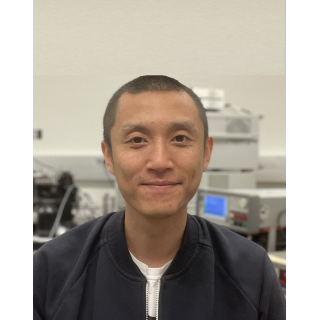
Prof. Zhong Wan
Assistant Professor
B.S. Jilin University; Ph.D. Purdue University
Room 104E, Chong Yuet Ming Physics Building
3917 1163
3917 1163Research Interests
Condensed matter experiments, 2D materials, Strongly correlated system, Low temperature quantum transport
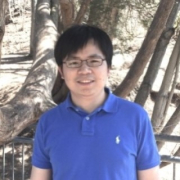

Prof. Chenjie Wang
Associate Professor
B.Sc. USTC; Ph.D. Brown
Room 311L, Chong Yuet Ming Physics Building
3917 7847
3917 7847Research Interests
Topological phases of matter, strongly correlated systems, quantum transport in mescoscopic systems, nonequilibrium statistical mechanics
Consultation Hours
Tuesday 4:00 p.m. - 6:00 p.m. (2024/25 Sem 2)
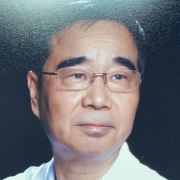
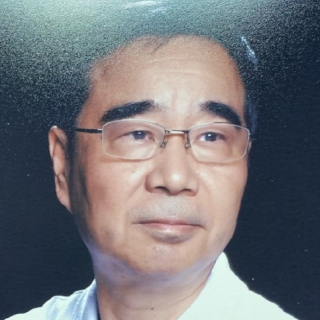
Prof. Zidan Wang
Chair Professor
B.Sc. USTC; M.Sc., Ph.D. Nanjing
Room 528, Chong Yuet Ming Physics Building
3917 1961
3917 1961Research Interests
Topological Quantum Physics, Quantum Computing and Quantum Information, and Condensed Matter & Cold-atom Physics
Consultation Hours
Monday 3:00 p.m. - 5:00 p.m. (2024/25 Sem 2)


Prof. Maohai Xie
Professor
B.Eng. Tianjin; M.Sc. Chinese Acad of Sc; Ph.D. Lond; DIC
Room 415C, Chong Yuet Ming Physics Building
3917 7945
3917 7945Research Interests
Quantum Materials, Molecular-beam Epitaxy, Surface Characterizations
Consultation Hours
Tuesday 2:30 p.m. - 4:30 p.m. (2024/25 Sem 2)


Prof. Yi Yang
Assistant Professor, HKU-100 Scholar
B.Sc. Peking; M.Sc. Peking; Ph.D. MIT
Room 311E, Chong Yuet Ming Physics Building
3910 2165
3910 2165Research Interests
Topological Photonics, Plasmonics, Photonic Crystals, Free Electron Optics
Consultation Hours
Tuesday 1:30 p.m. - 3:30 p.m. (2024/25 Sem 2)


Prof. Xiaobo Yin
Professor (by courtesy)
Professor, Department of Mechanical Engineering
Room 7-26, Haking Wong Building
3910 2659
3910 2659
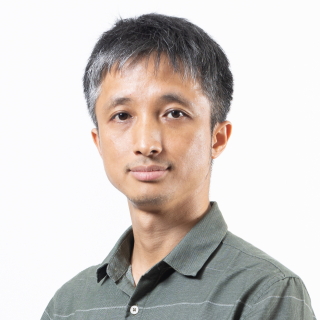
Prof. Wang Yao
Chair Professor, FAPS, FOSA
B.S. Peking; Ph.D. Calif
Room 529, Chong Yuet Ming Physics Building
3917 4809
3917 4809Research Interests
Twistronics, Moire superlattices, 2D materials, Valleytronics


Prof. Binzheng Zhang
Associate Professor (by courtesy)
Associate Professor, Department of Earth Sciences
Room 327, Hui Oi Chow Science Building
3917 1453
3917 1453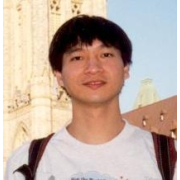
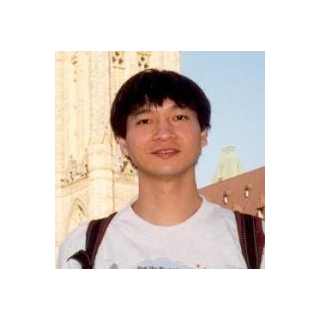
Dr. Man Kit Yip
Lecturer
Ph.D. HKU
Room 415B, Chong Yuet Ming Physics Building
3917 2366
3917 2366Research Interests
Mesoscopic System, Condensed Matter Physics
Consultation Hours
Tuesday 3:00 p.m. - 5:00 p.m. (2024/25 Sem 2)
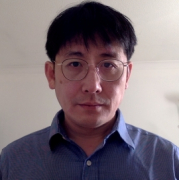
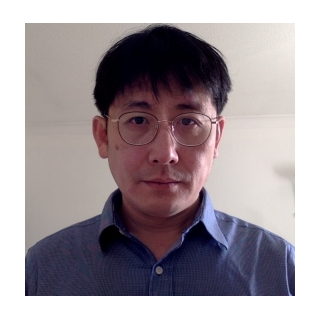
Prof. Shuang Zhang
Chair Professor, FOSA, FAPS, Interim Head
M.S. Northeastern; Ph.D. UNM
Room 521, Chong Yuet Ming Physics Building
2859 7944
2859 7944Research Interests
Metamaterials; Topological Photonics; Metasurfaces; Nanophotonics
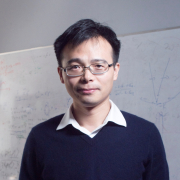
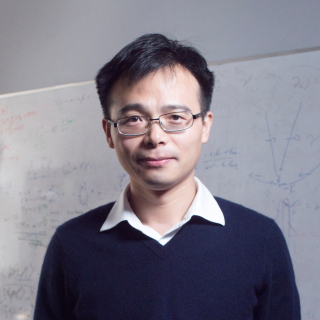
Prof. Shizhong Zhang
Professor, Associate Head
B.S. Tsinghua; Ph.D. Illinois
Room 526, Chong Yuet Ming Physics Building
3917 7943
3917 7943Research Interests
Ultra-cold Atomic Gases, Superfluidity and Superconductivity
Consultation Hours
Tuesday 4:30 p.m. - 6:30 p.m., Wednesday 3:00 p.m. - 5:00 p.m. (2024/25 Sem 2)


Prof. Xiang Zhang
Chair Professor, President
2859 2100
2859 2100Research Interests
Materials Physics; Optical Physics; Low-dimensional Quantum Systems

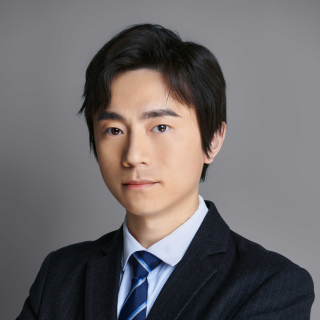
Prof. Yuxin Zhao
Associate Professor
B.Sc., PKU; Ph.D, HKU
Room 420, Chong Yuet Ming Physics Building
3917 2858
3917 2858Research Interests
The application of algebra representation and topology in condensed matter
Consultation Hours
Thursday 2:00 p.m. - 4:00 p.m. (2024/25 Sem 2)
Emeritus Professors
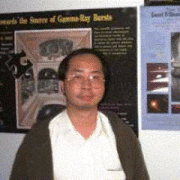
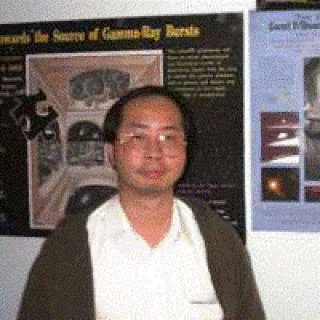
Prof. Kwong Sang Cheng
Emeritus Professor, FAPS
B.Sc. CUHK; M.A., M.Phil., Ph.D. Col; FRAS; FAPS
Theoretical Astrophysics, Neutron Star Physics, Pusars, Gamma-ray Bursts, Strange Stars
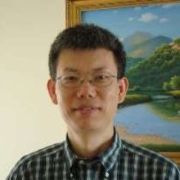
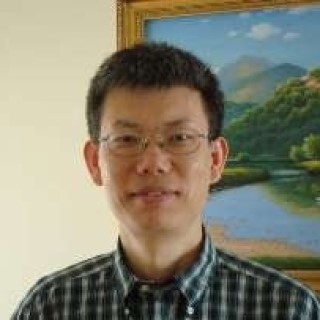
Prof. Jian Wang
Emeritus Professor, FAPS
B.Sc. Peking; Ph.D. Penn; FAPS
General Quantum Transport Theory, Spintronics, Nanoelectronics
Honorary/ Visiting / Visiting Research Professors


Prof. Gang Chen
Honorary Professor
B.Sc. USTC; Ph.D. UCSB
Research Interests
Theoretical Condensed Matter Physics


Prof. Donglai Feng
Honorary Professor
B.Sc. USTC; M.Sc. USTC; Ph.D. Stanford; MCAS
Research Interests
Electronic structure of highly correlated electron systems and their artificial microstructures, including cuprate and iron-based high-temperature superconductors, Mott insulators, magnetic materials, low dimensional systems, topological matters, complex organic materials etc.
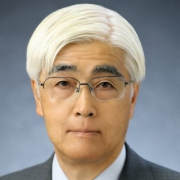
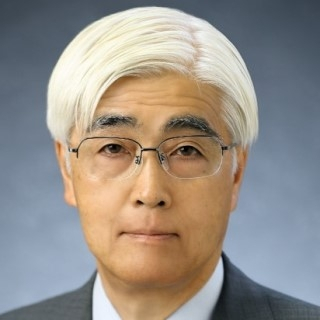
Prof. Teruya Ishihara
Honorary Professor
B.& M. Sci. U. Tokyo, Ph.D Tohoku U
Research Interests
Metamaterials, Metasurfaces, Topological Photonics, Hybrid Perovskites, Optical Nonlinearity
Prof. Stefan Maier
Visiting Research Professor
B.Sc. TUM; M.Sc., Ph.D. Caltech
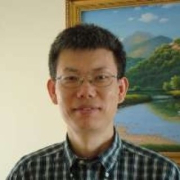
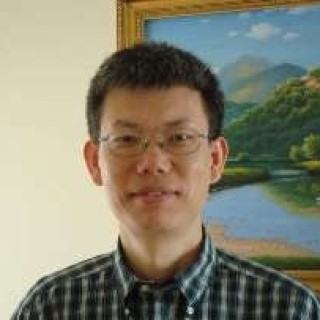
Prof. Jian Wang
Honorary Professor
B.Sc. Peking; Ph.D. Penn; FAPS
Research Interests
General Quantum Transport Theory, Spintronics, Nanoelectronics
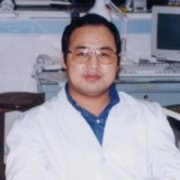
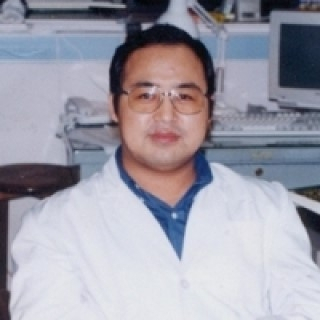
Prof. Shijie Xu
Honorary Professor
B.S. Hebei UT; M.S., Ph.D. Xian Jiaotong, Senior MOSA
Research Interests
Optical properties including nonlinear optical properties and ultrafast phenomena of semiconductor nanostructures. Luminescence and imaging of individual quantum dots are also our interest.
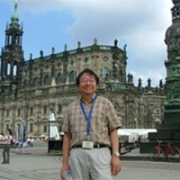
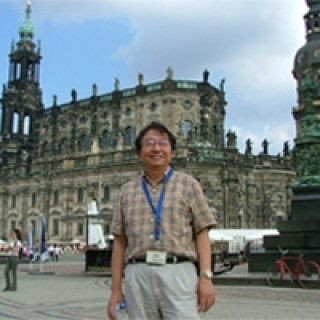
Prof. Fuchun Zhang
Visiting Professor
B.Sc. Fudan; Ph.D. Virginia Polytechnic & State
Research Interests
Theoretical Condensed Matter Physics, in particular Strongly Correlated Electron Systems including high temperature superconductivity
Honorary Associate Professors
Adjunct/ Visiting Scholars
Dr. Po Leung
Adjunt Assistant Professor
Ph.D. Queen Mary University of London
Room 519, Chong Yuet Ming Physics Building
Research Interest
Machine Learning, Computer Vision, Astrostatistics, Machine Learning in Finance, Bioinformatics
Research Assistant Professors
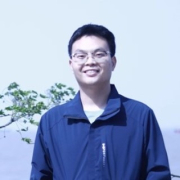
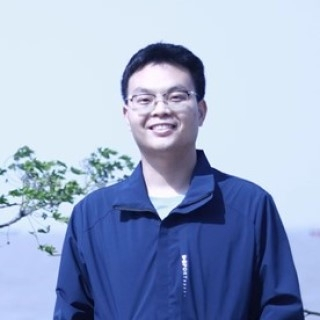
Dr. Yuanda Liao
Research Assistant Professor
B.Sc. SCUT; Ph.D. IOPCAS
Research Interests
Quantum Monte Carlo, Quantum many-body computation


Dr. Luca Pizzimento
Research Assistant Professor
Ph.D. INFN Roma Tor Vergata
Research Interests
Detector, HEP, Front-end, Electronics


Dr. Yipu Xia
Research Assistant Professor
B.Sc. HKBU; Ph.D. HKU
Research Interests
Surface Science: Molecular Beam Epitaxy, Two-dimensional Materials, Scanning Tunneling Microscopy
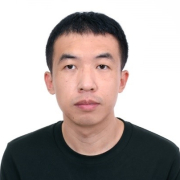
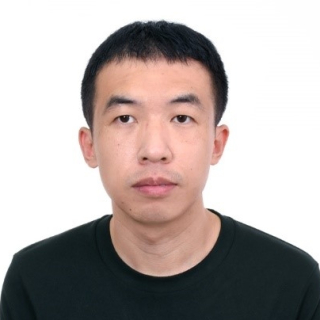
Dr. Dawei Zhai
Research Assistant Professor
B.Sc. BIT; Ph.D. OU
Research Interests
2D materials, Twistronics, Straintronics, Layertronics
Consultation Hours
Wednesday 10:00 a.m. - 12:00 noon (2024/25 Sem 2)
